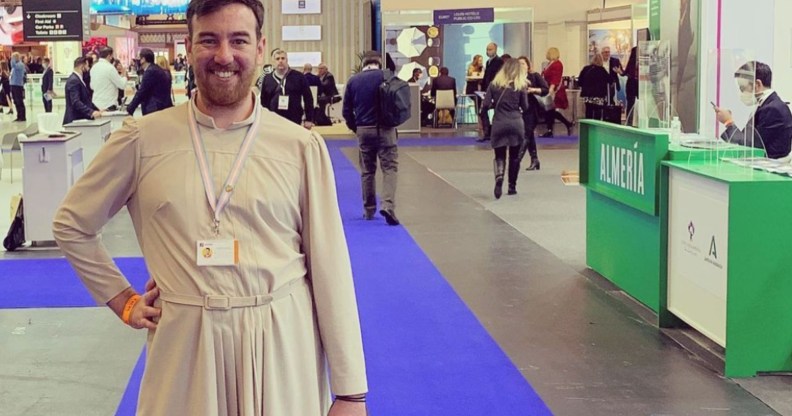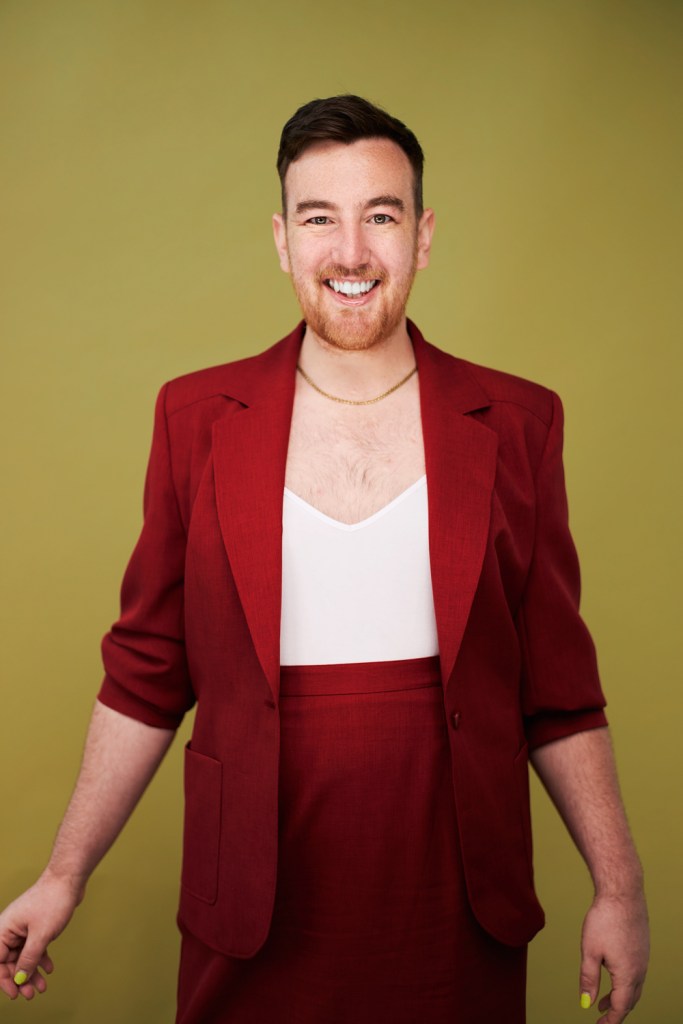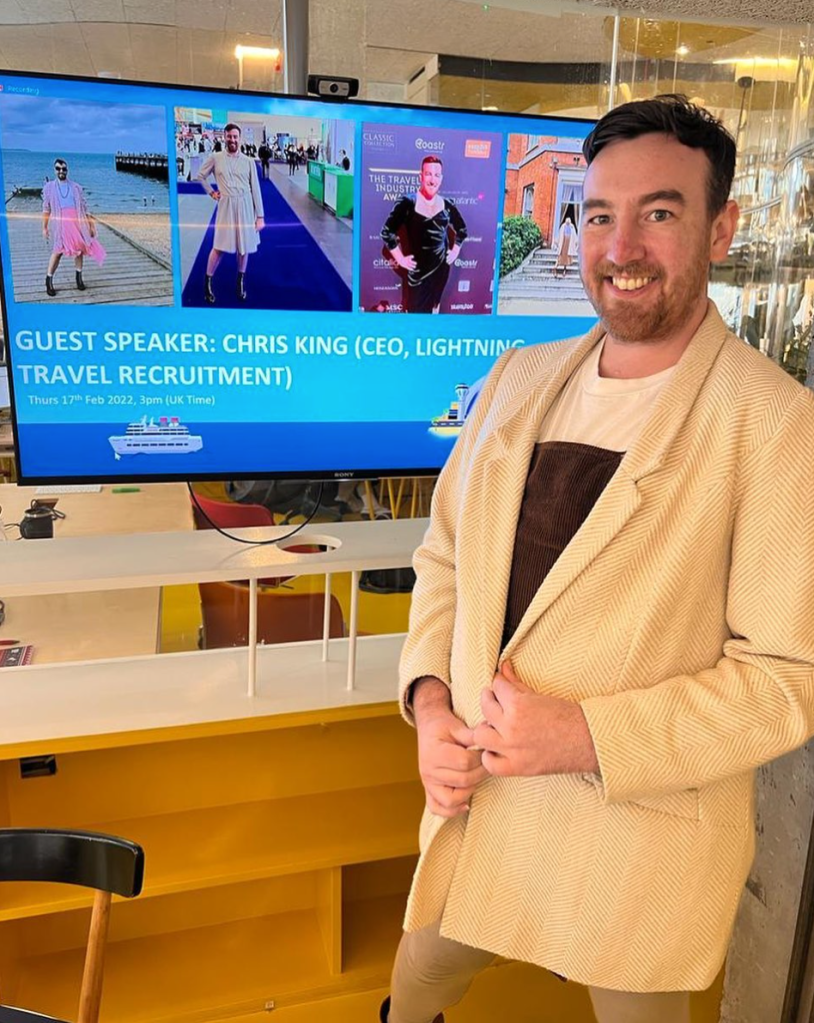LGBTQ+ travel chief executive reveals how living their authentic self led to success

Founder and chief executive at Lightning Travel Recruitment, Chis King, is committed to diversity and inclusion within the travel and tourism industry. (Chris King/Lightning Travel Recruitment)
Chris King, the founder and chief executive of Lightning Travel Recruitment, has explained how they carved their own seat at the table and how they champion diversity throughout the industry.
Growing up on a council estate in south east London, King, who uses she/they pronouns, always wanted a career in the events industry.
Having worked in hospitality, and with a love for people, she was led down the path into sales, and by cautiously not adhering to the “old-school car salesman” stereotype, realised she was a “bloody good salesperson.”
After falling into the luxury end of travel, she hid large parts of their identity in an effort to succeed.
“I changed my accent, took elocution lessons to try to fit in, and hid my queerness and [had] undiagnosed attention deficit hyperactivity disorder (ADHD) at the time,” she told PinkNews.

A toxic work experience led to health issues, and, being bed-bound at the time, King reflected on the lack of representation she was seeing in recruitment agencies.
“I don’t have anyone here who can represent me. If I feel like that, there must be so many other people who want to be represented who don’t feel as if they are,” she remembered thinking.
From that realisation, along with a conversation with friends, Lightning Travel Recruitment was born. King, along with a small team, is committed to diversity and inclusion within the travel and tourism industry.
“Let’s look at inclusivity within recruitment. Let’s look at candidate-first experiences,” she said. “There’s an actual need for something like this.”
‘It’s who you know, not what you know in this industry‘
Chris King, founder and chief executive at Lightning Travel Recruitment
Tourism is one of the world’s biggest industries, generating billions of pounds every year.
The industry was hit particularly hard during the COVID-19 pandemic, but estimates suggest that tourism is back to near pre-pandemic levels when it comes to money spent and jobs available. With four million workers, it’s a crucial part of the UK’s economy, but, like many sectors, it isn’t always the most diverse.
While there is a notable presence of representation from the queer community in the travel and hospitality sectors, this doesn’t address the broader issue of companies failing to actively market to, and support, other marginalised groups.
King acknowledged that the make-up of the people working in the luxury side of the industry is “kind of like Made in Chelsea.”
She added: “It’s very white, it’s very middle class. It’s who you know, not what you know in this industry.”
This “who you know” mentality goes right down to who is selling destination packages.
“The people from those destinations selling it do not accurately represent the destination they’re selling. The industry has a huge problem because it’s a privately owned industry that is not regulated. Lots of people at the top, like in other industries, happen to be white cis-het men of a certain age.”

Aside from running their own travel recruitment firm, King is also vocal about their personal journey. From being bed-bound for an entire year due to burn-out, to their openness to reveal that they are now taking oestrogen and T-blockers, King said that not being able to live their authentic self nearly cost them their life.
“I reached a point where I was tired of apologising for simply existing,” she admitted. “The mental and physical strain that has on our body, pretending to be somebody else, I would not wish that on my worst enemy.”
King’s openness within her own life, her work advocating for non-binary and trans inclusion in the workplace and her living with ADHD led to them being named one of LinkedIn’s top 10 LGBTQ+ voices in the UK. Had she had that type of resource, years of trauma could have been avoided, she said.
“I’m able to share my story, and I’m able to educate through storytelling. I’m able to uplift other queer voices, other intersectional voices within the community to create that change.”

As Pride month carries on amid the anti-trans in the mainstream media and from the prime minister, King has advice for trans people and business leaders who want to be more than a performative ally.
She suggested that trans and non-binary people do the research to find a company that will be supportive and allow for an authentic presence in the workplace. More importantly, she acknowledged the need for people to view their own well-being as a priority.
“There is no pay cheque, no job title, that’s worth your mental or physical health,” she said.
When it comes to business leaders, King’s advice for trans inclusion in the workplace is more blunt, and it starts with not being silent. “I’m a huge believer that allyship starts and ends in the business world.
“There is so much rubbish going on against trans and queer people right now and silence is complicity.”
How did this story make you feel?

